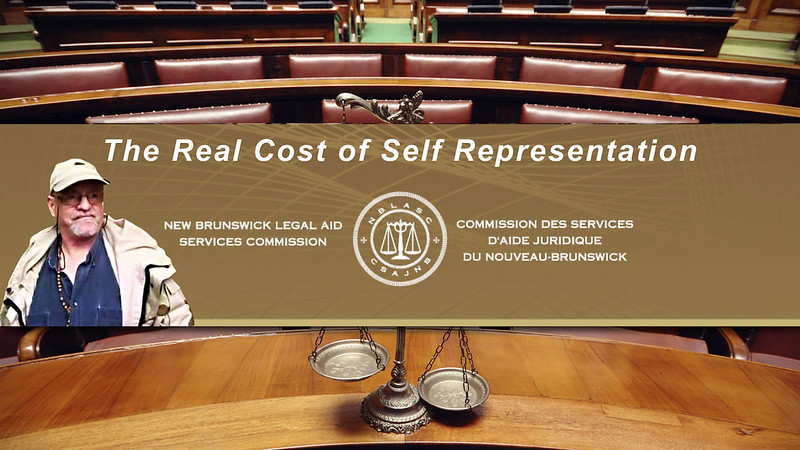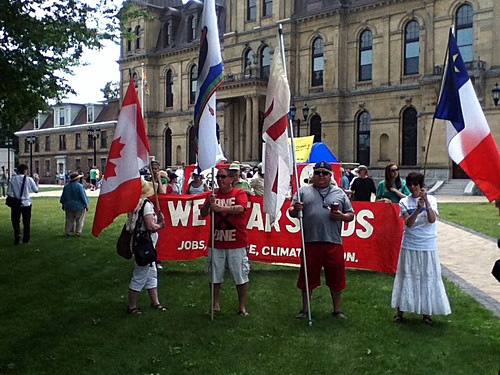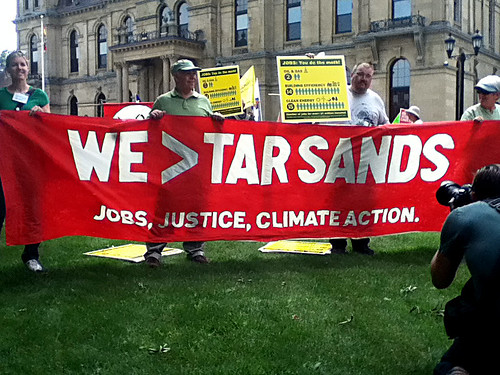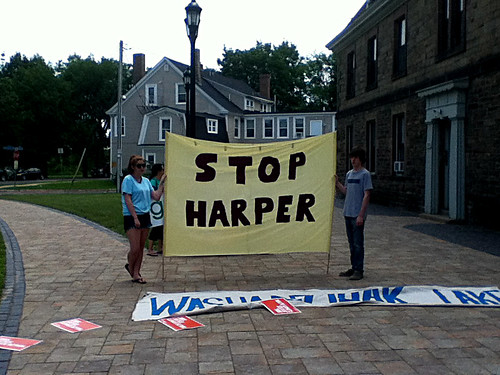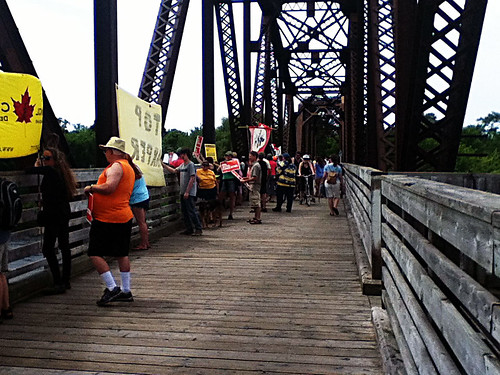Justice
We Don’t Have Speed Dating In New Brunswick – We Have Speed Prosecuting

Source: Charles Leblanc Blog Sept 24, 2015
Charles LeBlanc has repeatedly asked the Fredericton court reporter, Don MacPherson, to write an article on the injustices of summary charge prosecutions. Charles has learned, the hard way, that summary charge process is little more than a fast track to trial and conviction – unless you know the law better than a lawyer. Even then judges argue on behalf of the Crown and protect dirty cops.
Just before his hearing, on 18th September, 2015, Charles asked MacPherson (yet again) to write an informative article on the disaster that is summary charge prosecution. In response the court reporter stormed out of the hearing, saying Charles obviously didn’t want him there. Nothing could have been farther from the truth.
Don MacPherson has said many times his job is only to report what he hears and sees; he does not investigate or pass opinion. The trouble is what he hears and sees is not always what is reported. MacPherson also lectures people for attacking his “journalistic integrity”. I think his article, published on 21 September, tells us exactly where his journalistic integrity lies. Even though he did not “see” or “hear” anything of Charles’s hearing (having left in a tantrum) he still wrote an article as the court reporter. His short article was full of errors and misinformation, including a false and defamatory headline, saying Charles was going to trial for assaulting a police officer. Better to write nothing at all than to misinform the public and defame someone.
The Irving press clearly has no interest in educating the public, exposing systemic abuse or improving quality of life in this province. It is actively suppressing systemic wrongdoing and the court reporter seems to be one of Irving’s instruments. Since the Irving press won’t write the article I will. The public needs to know.
There are two levels of criminal offence in Canada: summary and indictable. Summary is less serious and the chosen route for most complaints. Depending on the offence, a summary conviction can result in up to 6 – 18 months incarceration and/or fines up to $5,000. It is still a very serious matter, negatively impacting reputations as well as Charter rights to liberty, security and equality – sometimes even life, as we saw with the tragic outcome of RCMP Corporal Ron Francis’s ridiculous charges and prosecution.
Under the Criminal Code of Canada the Federal Government has set up a two-tier system for laying, prosecuting and trying the two levels of charge. The differences create a huge disconnect for access to justice. Those charged with indictable offences have far more access to court process that may prevent a charge from proceeding to trial, assuming the accused know their rights, or have a competent lawyer (both of which are rare as the yeti).
Both types of charge are usually laid in provincial court by police officers who swear an “Information” before a judge. However, for more serious indictable offences, the Crown can prefer an indictment, submitted directly to the Superior court, which is not so common.
What are the big differences between summary and indictable criminal process? When indictable charges are presented to a court the judge is required to review the grounds and evidence before accepting it. This may require a hearing, held without the public or accused allowed, so I doubt that happens very often.
After entering a plea those accused of indictable offences can choose to be tried by one of the following: a provincial court judge; a Superior Court judge; a Superior Court judge and jury. The defence can also request a preliminary inquiry, which is a hearing to decide if there is enough evidence to proceed to trial. There are no such luxuries provided for summary offence prosecutions.
When a summary charge is laid judges are under no obligation to review any evidence or grounds. There is no right to a preliminary inquiry and no right to elect if the trial will be in provincial or superior court, or by judge and jury.
The Criminal Code also does not allow appeals from interim judicial decisions – however appalling – until the accused has been convicted and/or sentenced. In short, the criminal justice system is designed to fail defendants. There seems to be a nationwide agenda to use summary charges to fast-track people to trial, which almost always results in the Crown winning a conviction, based on little to no evidence and police officers “testilying”. (“Testilying” is the act of police lying on the witness stand – yes, it is so common it even has a name.
As we all now know, Legal Aid Services New Brunswick is withdrawing even basic services. Many people facing jail for a summary charge are not represented. Summary trials seem designed to convict people as quickly as possible. I heard a Fredericton Provincial Court judge say her trials average 30 minutes.
So, why is our criminal justice system such a disaster? First, I think this province has very few real jobs. Zero growth in business and industry and a contracting job market means the government has to preserve a facade that we need lots of police, judges, sheriffs, court staff, jails and their employees and Crown prosecutors. Without those jobs this province would be in an even bigger economic crisis than it is already in.
And let’s not forget the other winners in a prosecution: defence lawyers. Prosecutions create jobs and income for them. Private defence counsel costs up to $500 an hour. Even if you can pay that your lawyer will be working to clock up the hours, not to acquit or terminate the proceedings in favour of the client.
We don’t have speed dating in New Brunswick – we have speed prosecuting
Self-representation more costly to taxpayer than cost of Legal Aid lawyer
by André Faust
Abraham Lincoln had it right when he said “He who represents himself has a fool for a client”.
Given a choice, most persons accused of a crime would prefer a lawyer represent them in court. But not everyone has a choice. The poor are denied access to justice when they cannot afford to pay legal fees of $125 per/hour or more. And when they turn to New Brunswick Legal Aid for help with summary offenses such as assault, they are refused.
Where a middle-class or wealthy person hires a lawyer to stickhandle the same offense through the system, a poor person has to defend herself or plead guilty. If she challenges the system, she ends up representing herself in court – becoming “the fool” of Abe Lincoln’s legal maxim.
As a result, we see a growing number of low-income, self-represented litigants and accused who have become a standard feature in New Brunswick ‘s civil and criminal courts.
According to the Canadian Bar Association, the cost of self-representation is expensive to both the accused and the taxpayer. The self-represented consume significantly more court time and resources than those with legal representation and they lose more often than they win.
The Charles Leblanc case is a glaring example of Legal Aid’s abject failure to help low-income persons make their way through the justice system. It also shows that self-representation costs considerably more to the taxpayer than a Legal Aid lawyer.
In January, the controversial blogger was charged with the summary offence of assault, an accusation he vigorously denies. LeBlanc has been diagnosed with ADHD and epilepsy and receives a monthly income assistance cheque of $576. He lives in subsidized housing and cannot afford a lawyer. He applied twice for Legal Aid but was refused. If found guilty, LeBlanc could go to jail, lose his apartment and become homeless.
Given the circumstances, LeBlanc believes he has no choice but to represent himself in court. A group called “Friends For Justice” has set up a website http://charlesleblancdefencefund.com/ and raised more than $1100 with a goal of $5000 to pay for a lawyer and give LeBlanc a legal defence. Until then, however, LeBlanc continues to have a “fool for a client”, as Abe Lincoln would say.
Leblanc’s first court appearance as a self-represented accused was on January 19 before Justice Julian Dickson. Since, then, he has appeared five more times before Justice Mary Jane Richards and Justice Brian McLean along with Special Crown Prosecutor Sebastien Michaud, who has been brought in from Edmundston.
Two recent hearings on July 7 and August 26 took 12 hours, the last one to question two members of the Miramichi Police Force who received the original assault complaint at the request of the Fredericton City Police. These two officers have travelled to Fredericton at least nine times on taxpayers’ expense, perhaps more.
The next court date is Friday, September 18, at which time two Fredericton police officers will be cross examined by LeBlanc. Anyone who has sat in on the proceedings would agree it is painful to watch LeBlanc struggle with complex legal processes while begging the judge to appoint a Legal Aid lawyer. If previous hearings are any indication, the next session will be at least eight hours. And if the case goes to trial, it could be very lengthy with LeBlanc representing himself.
The costs to the taxpayer are surely in the tens of thousands of dollars by now and there is no end in sight, but what is an accused to do if he believes he is innocent? Ironically, had a Legal Aid lawyer argued LeBlanc’s case from the beginning, this would have been resolved months ago, and the cost to the taxpayer would have been significantly reduced.
The problem is that policies making civil and criminal Legal Aid available for the working poor, seniors, students and those on income assistance are at the bottom of the priority list across Canada . The common denominator seems to be costs. Accessibility to Legal Aid is a budgetary matter and budgets determines one’s eligibility, not justice.
Justice Minister Stephen Horseman must order changes to Legal Aid that will make it easier for New Brunswickers to qualify for assistance and get the necessary representation to resolve their legal issues.
If not, we will have more poor people tying up the courts and costing the taxpayer tens of thousands of dollars for cases that could be resolved quickly and easily with a Legal Aid lawyer.
Fredericton Blogger Charles Leblanc Denied Court Transcripts
By André Faust
Guilty, not guilty; break the law, not break the law. That is not the issue here; the problem is that is that if you are a New Brunswicker and you are charged with a summary charge and cannot afford a lawyer the likelihood of successfully defending yourself is highly remote. Those who can afford legal representation are the ones who are most likely to present legally sound arguments in to the courts and the courts will come to a decision based on the facts and the arguments presented.
The lesson that is learned from Charles Leblanc is that our system inadvertently discriminates between those who are fortunate to afford representation and those who are unfortunate and cannot hire a lawyer.
What available options are there for those who can not afford a lawyer. One option is to plead guilty and forfeit any defenses that might be available to the person. After pleading guilty the person is at the mercy of the court for sentencing. The other option is to self-represent.
The moment one self-represents they are at a disadvantage because they don’t know the rules of the game, additionally don’t know how the game is played. How can they best represent themselves when they have to argue against a prosecutor who is well experience with court procedures and knows how to present legally sound arguments to persuade the judge to agree with the prosecution. While the onus is on the crown to find someone guilty, it is the defenses’ responsibility to counter the prosecution claim, but in order for the defense to do that they have to have the legal tools to do so.
Without money how can the defendant pay for legal document which may be contained within those documents information to support the defence’s arguement. According to Charles, the clerk told him the cost for him to have his transcripts would be $400 which he cannot pay for, in essence the court refused because of affordability the transcript which could provide information crucial of his defence.
Our legislators need to address this inequality in the administration of justice so that everyone criminal or civil is on the same playing field regardless to affordability.
The key argument to why legal aid will not supply legal representation for summary conviction because of the costs to provide a lawyer to every financially disadvantage person. But in the long term, the cost to the taxpayer may be greater with self-representation, then if a lawyer was supplied to the accused on the onset.
Dennis Oland accused of killing his father has not spent one day in jail, while many with similar charges where held in custody upon being charge. The difference is Oland has the resources to purchase the talents of Canada’s best legal minds to come to his aid.
Jobs Justice Climate Action: Walk was a success
By André Faust
A well-attended rally/march held on July 4 in Fredericton drew a diverse group of people except for representatives from the Conservative, NDP and Liberal party. The only MLA that was present was David Coon of the Green Party. The rally in Fredericton joined the other nationally held rallies across Canada on this day.
Coordinated by the 350 organized these rallies represent one the most diverse climate mobilization ever seen in Canada’s history, sending a clear message to those running in the upcoming federal elections that Canadians are seeing importance of improving and maintaining the integrity of the global environment.
Conservative Prime Minister of Canada Stephen Harper has focused his attention of promoting the one industry: fossil fuels at the expense of the environment. Harper has walked away from the Kyoto accord, changes in the navigable waters act to remove barriers that prevented pollution of the waterways by big industry.
Under the new anti-terrorism legislation, Harper included that interference with the oil industry is an act of terrorism, and those responsible will be treated under the law as terrorist.
Leadnow an independent advocacy organization that engages people in participatory decision-making was present circulating a pledge to encourage block voting against the Harper government.
